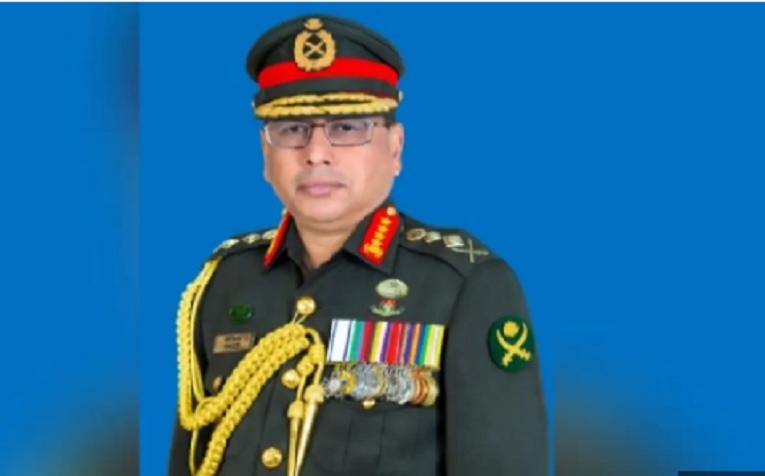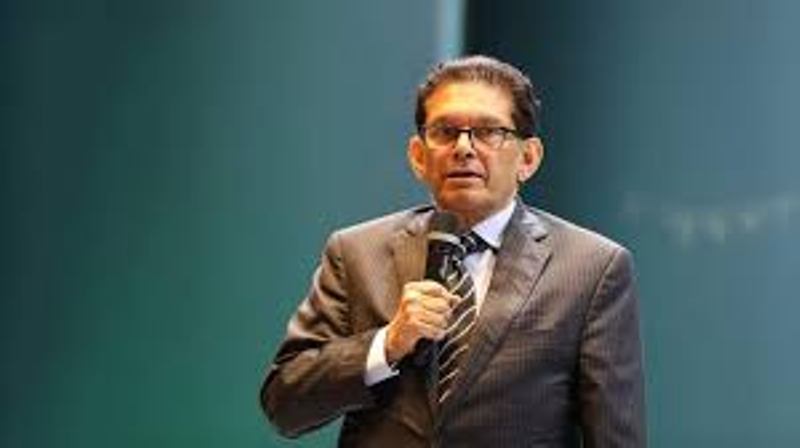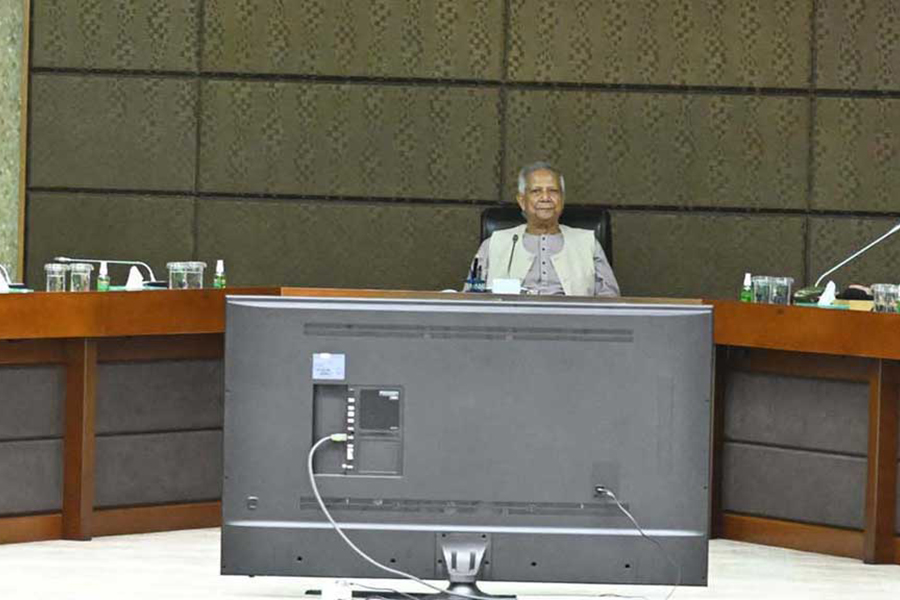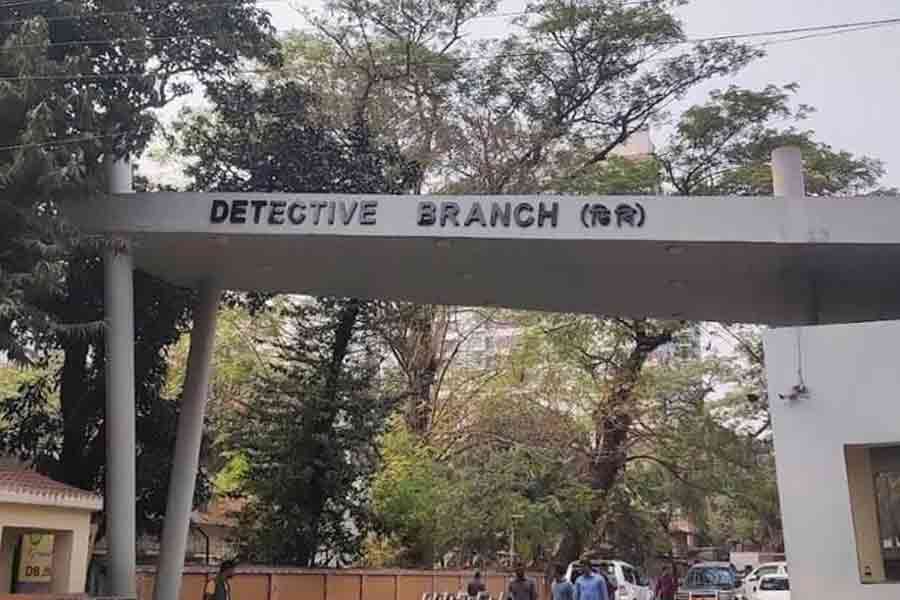- Copy to clipboard
- Thread starter
- #41
Saif
Senior Member
- Messages
- 15,207
- Reaction score
- 7,790
- Origin

- Residence

- Axis Group


Army denies getting warning from UN
The Bangladesh Army on Monday said that it did not receive any direct communication or intent from the United Nations High Commissioner for Human Rights regarding the matter stated by UN human rights chief Volker Türk.
 www.newagebd.net
www.newagebd.net
Army denies getting warning from UN
Staff Correspondent 10 March, 2025, 23:48

The Bangladesh Army on Monday said that it did not receive any direct communication or intent from the United Nations High Commissioner for Human Rights regarding the matter stated by UN human rights chief Volker Türk.
The Inter Services Public Relation Directorate clarified the Bangladesh Army’s position in a statement on Monday, five days after the OHCHR chief had told BBC’s HARDtalk programme that the regime change in Bangladesh came after they had warned the Bangladesh Army that if they got involved, they would not be a troop contributing country anymore in the UN peacekeeping missions.
‘As a result, we saw changes,” said Volker Türk in the interview while speaking about the Bangladesh regime change last year when Professor Muhammad Yunus took over as chief adviser of the interim administration.
He said that there was massive repression during the protest against the then Sheikh Hasina government.
Professor Muhammad Yunus assumed power on August 8, three days after the fall of the Sheikh Hasina regime on August 5, 2024 amid a student-led mass uprising.
‘If any such concerns were raised, they were conveyed to the erstwhile Government of Bangladesh and not directly to the army leadership. The Bangladesh Army operates within the framework of national security directives and adheres strictly to the rule of law and human rights principles,’ said the ISPR regarding the remarks by Volker Türk.
The ISPR said that Volker Türk’s remarks, taken out of context by certain quarters, appear to misrepresent the role of the Bangladesh Army and potentially undermine its reputation, sacrifice and professionalism.
The Bangladesh Army remained committed to people, upholding its legacy of neutrality and integrity, the ISPR statement read, adding that historical events, such as the democratic transition of 1991, reaffirm this dedication. During the July-August 2024 protests, the army once again stood by the people, ensuring public safety without bias or external influence.
‘As the second-largest contributor to UN peacekeeping, it is globally recognised for its professionalism and dedication. Notably, while peacekeepers receive a tiny portion of foreign earnings, the majority—around Tk 27,000 crore earned over 23 years—has significantly contributed to the national economic growth,’ said the ISPR statement.
It said that the Bangladesh Army deeply values its partnership with the OHCHR and remains steadfast in its commitment to serving both the people of Bangladesh and the global community.
The ISPR further said that any concerns regarding its role could be best addressed through open dialogue and constructive engagement.
Staff Correspondent 10 March, 2025, 23:48
The Bangladesh Army on Monday said that it did not receive any direct communication or intent from the United Nations High Commissioner for Human Rights regarding the matter stated by UN human rights chief Volker Türk.
The Inter Services Public Relation Directorate clarified the Bangladesh Army’s position in a statement on Monday, five days after the OHCHR chief had told BBC’s HARDtalk programme that the regime change in Bangladesh came after they had warned the Bangladesh Army that if they got involved, they would not be a troop contributing country anymore in the UN peacekeeping missions.
‘As a result, we saw changes,” said Volker Türk in the interview while speaking about the Bangladesh regime change last year when Professor Muhammad Yunus took over as chief adviser of the interim administration.
He said that there was massive repression during the protest against the then Sheikh Hasina government.
Professor Muhammad Yunus assumed power on August 8, three days after the fall of the Sheikh Hasina regime on August 5, 2024 amid a student-led mass uprising.
‘If any such concerns were raised, they were conveyed to the erstwhile Government of Bangladesh and not directly to the army leadership. The Bangladesh Army operates within the framework of national security directives and adheres strictly to the rule of law and human rights principles,’ said the ISPR regarding the remarks by Volker Türk.
The ISPR said that Volker Türk’s remarks, taken out of context by certain quarters, appear to misrepresent the role of the Bangladesh Army and potentially undermine its reputation, sacrifice and professionalism.
The Bangladesh Army remained committed to people, upholding its legacy of neutrality and integrity, the ISPR statement read, adding that historical events, such as the democratic transition of 1991, reaffirm this dedication. During the July-August 2024 protests, the army once again stood by the people, ensuring public safety without bias or external influence.
‘As the second-largest contributor to UN peacekeeping, it is globally recognised for its professionalism and dedication. Notably, while peacekeepers receive a tiny portion of foreign earnings, the majority—around Tk 27,000 crore earned over 23 years—has significantly contributed to the national economic growth,’ said the ISPR statement.
It said that the Bangladesh Army deeply values its partnership with the OHCHR and remains steadfast in its commitment to serving both the people of Bangladesh and the global community.
The ISPR further said that any concerns regarding its role could be best addressed through open dialogue and constructive engagement.
















